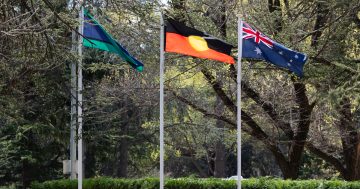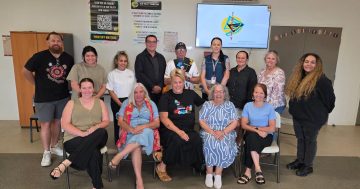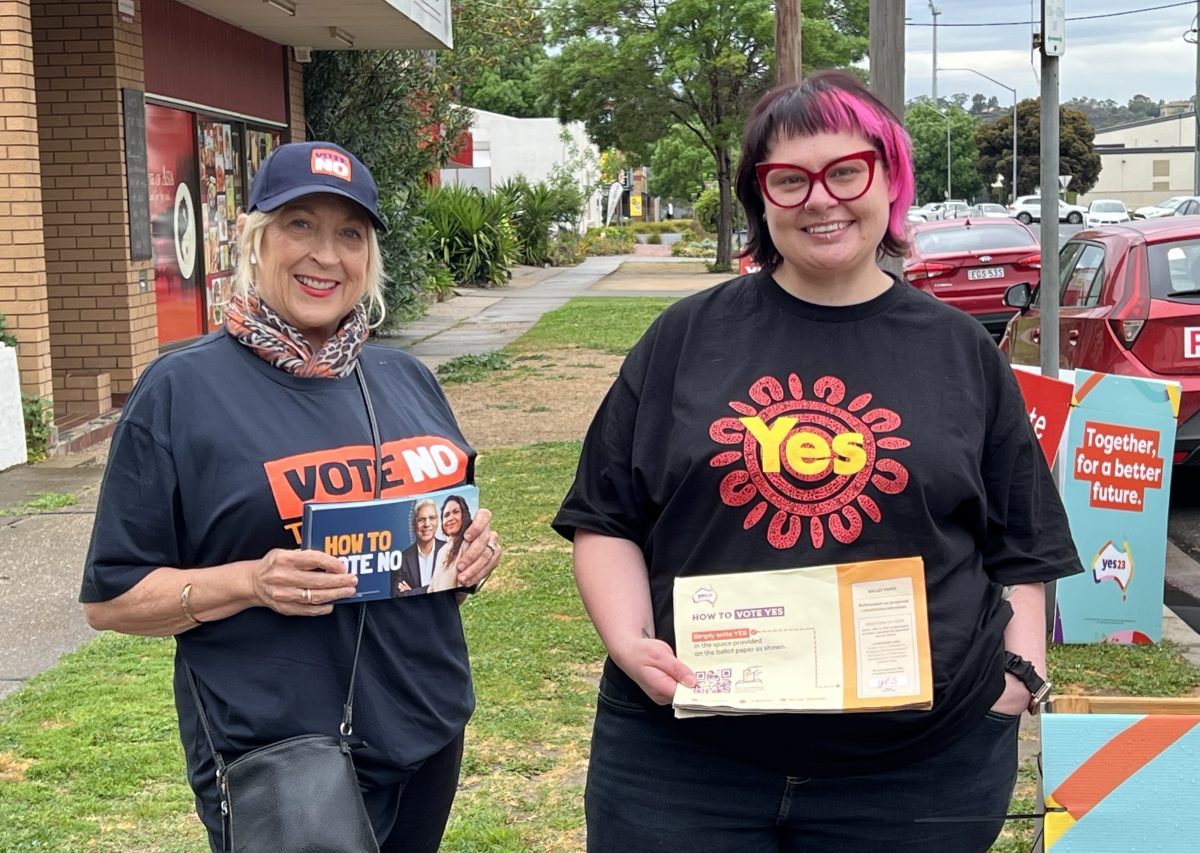
Volunteers have been busy manning the Riverina’s pre-polling stations. Photo: Chris Roe.
While the 14 October referendum is still more than a week away, hundreds of Riverina locals have already taken advantage of early voting on the proposed Voice to Parliament.
Volunteers were on hand to promote the case for both ‘Yes’ and ‘No’ as pre-polling opened on Wagga’s Berry Street on Tuesday.
“People are out early on and I guess it shows that they are keen to put this vote in and we’ve got plenty of volunteers here spreading the message,” said ‘Riverina for Yes’ campaigner Nick Spragg.
“We’re telling people why it’s a good thing for the country to vote Yes, and I think that, as our posters say, it’s about recognition and it’s overdue.”
Margaret O’Reilly was also on hand to argue the No case and described the vote as “the referendum that we don’t need”.
“The Aboriginals didn’t call for this referendum, it’s the Government that’s doing this, and it’s corporations,” she said.
“They’re pulling the wool over our eyes.”
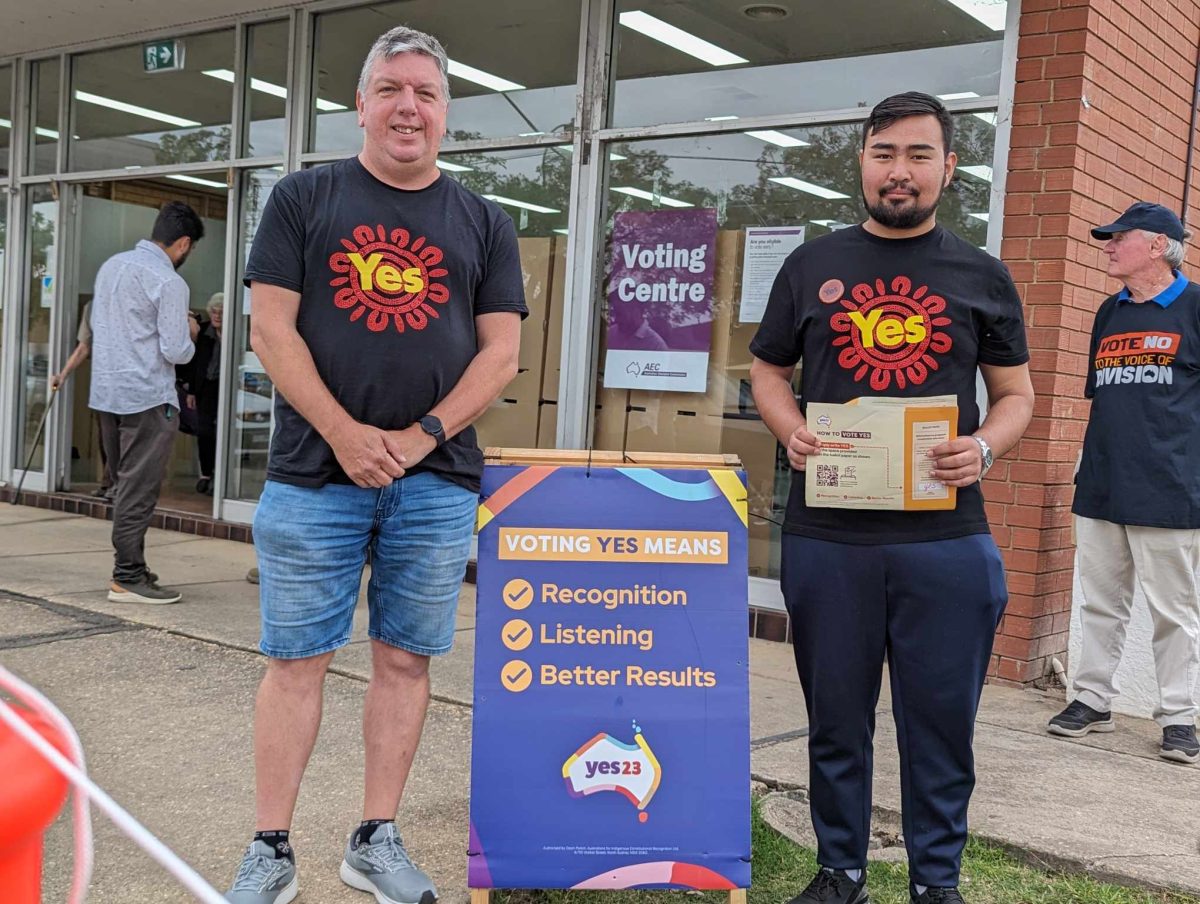
Nick Spragg and Hadi Nazari have been campaigning for ‘Yes’ at the polling booth. Photo: Jarryd Rowley.
Voting in the referendum is compulsory for all Australians who are enrolled and they will be faced with a single question on the ballot paper.
“A proposed law: to alter the constitution to recognise the First Peoples of Australia by establishing an Aboriginal and Torres Strait Islander Voice. Do you approve this proposed alteration?”
It is then a matter of writing ‘Yes’ or ‘No’ in the space provided.
Nick Spragg said that ultimately, the proposed Voice was about “listening” to Indigenous people when making laws that would impact them.
“Over time laws have been made under the constitution and under the race-based laws, laws have been made like the Northern Territory intervention,” he explained.
“There hasn’t been any listening but there’s been a lot of telling, so all the Voice is going to do is to enable that mechanism to listen before laws are made and we’ll see better results.”
Margaret O’Reilly argued that Aboriginal people already had “sovereignty of the land” and that a change to the constitution would undermine this and negatively impact all Australians.
“They are one with the land, and that sovereignty of the land that they hold actually protects me and gives me my sovereignty,” she said, describing the referendum as “illegal”.
“The referendum should be called by the people, but what happened is that our corporate government has called the referendum, which is actually an inversion of authority.”
Early results from the first day of voting have indicated a slight increase in the Yes vote, but it still lags behind the majority No vote that has grown since the Coalition withdrew bipartisan support.
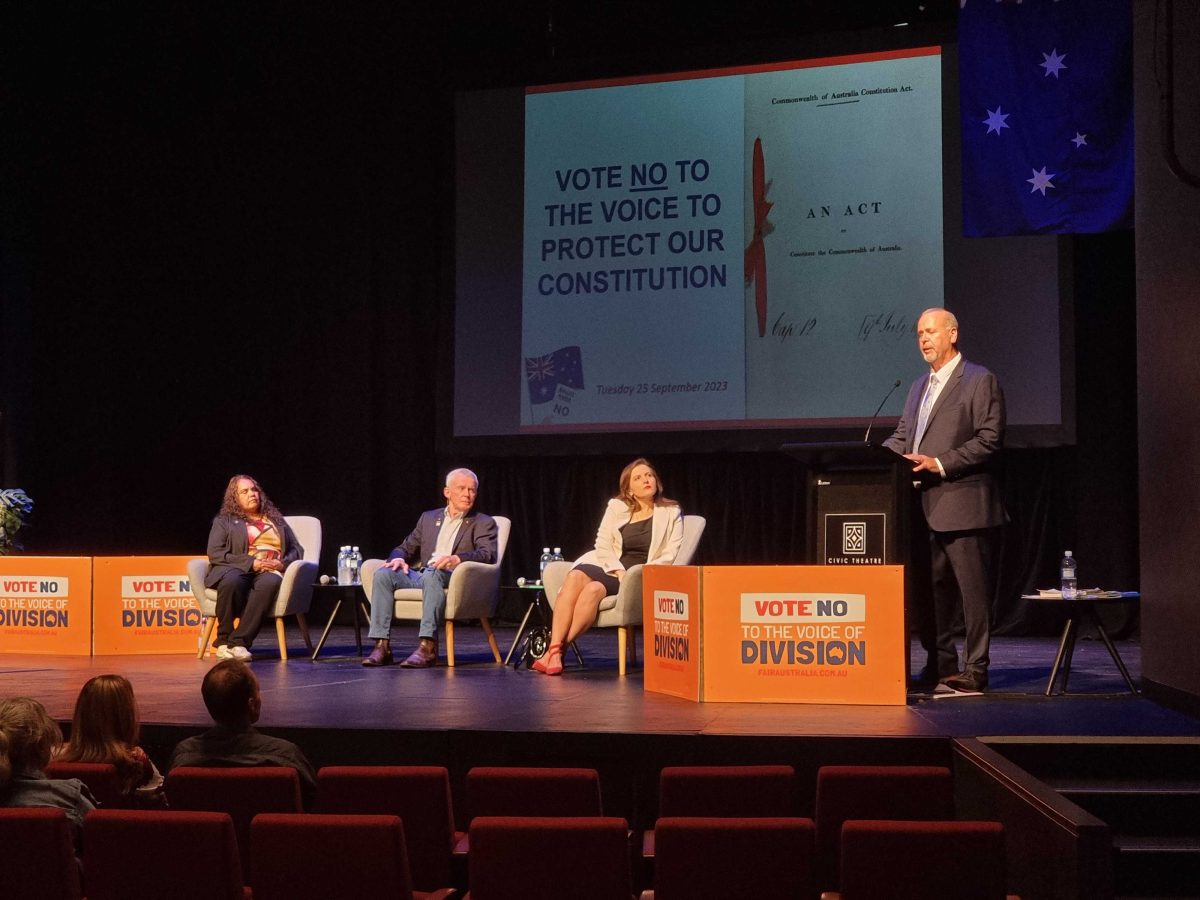
Vote No! Voice to Parliament event at the Wagga Wagga Civic Theatre with local Aboriginal woman Paula Murphy, Queensland One Nation senator Malcolm Roberts, One Nation MLC Tania Mihailuk and event organiser Paul Funnell. Photo: Shri Gayathirie Rajen.
The journey towards constitutional recognition of Australia’s first peoples has been decades in the making but was added to the political agenda in 2007 when Prime Minister John Howard promised to hold a referendum on the issue.
Subsequent PMs Kevin Rudd, Julia Gillard, Tony Abbot and Malcolm Turnbull continued the process that led to the establishment of a Referendum Council in 2015 and extensive consultation with Indigenous communities across the country.
Ultimately, several hundred Aboriginal and Torres Strait Islander representatives gathered in the Northern Territory for the First Nations National Constitutional Convention.
The resulting Uluru Statement from the Heart proposed threefold constitutional reform that would include “voice, truth, and treaty”.
The process of designing the Voice was a bipartisan venture under the Morrison Government which had also pledged to hold a referendum.
When Labor won the 2022 federal election, incoming leader Anthony Albanese declared Indigenous recognition a core priority and the proposed question and referendum date were set this year.
The Nationals and Liberal Party rejected the approach and the question proposed by the Albanese Government, citing a lack of detail and differing opinions within Indigenous communities and labelled it the “Canberra Voice”.
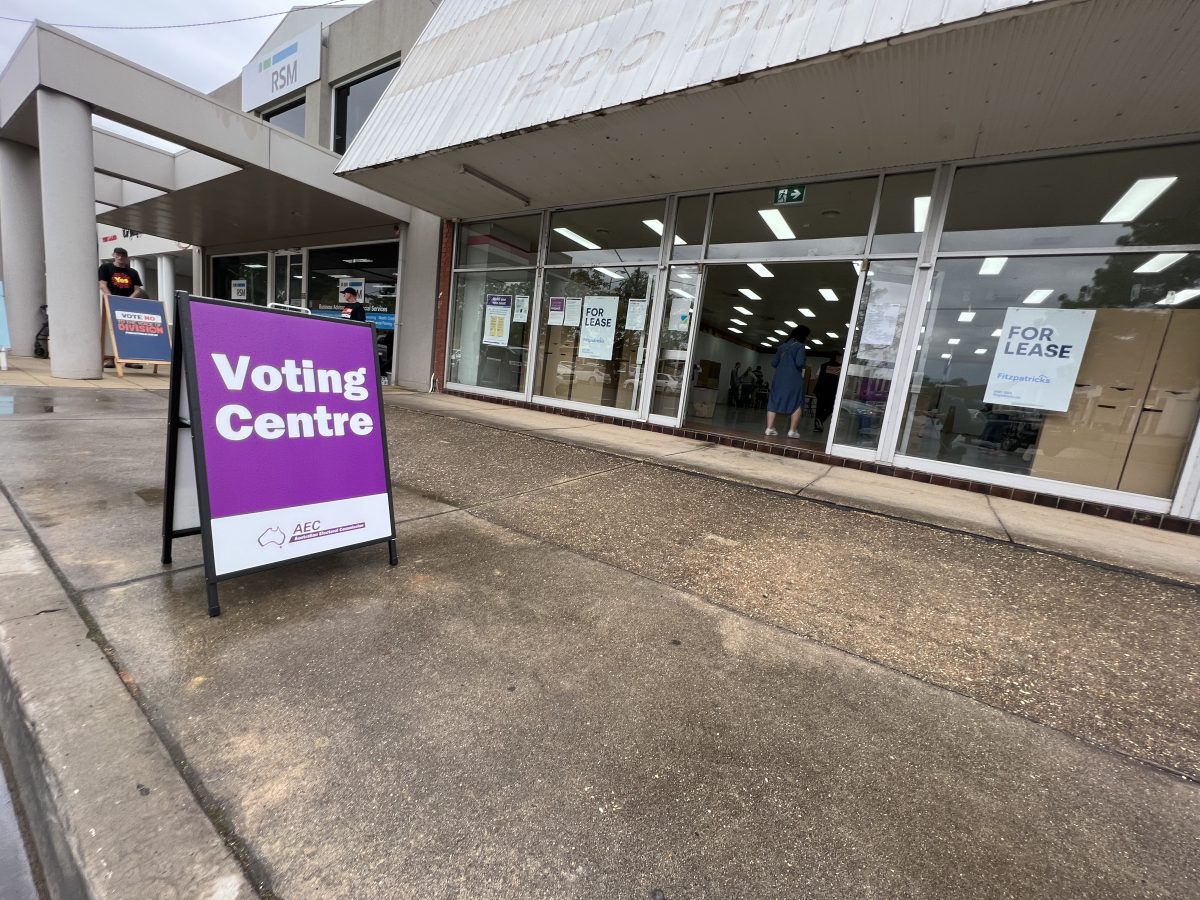
Pre-polling opened on Wagga’s Berry Street on Tuesday. Photo: Chris Roe.
While a majority of Aboriginal Australians continue to support the Voice, support overall has declined.
The Opposition continued to question the makeup and influence of the proposed advisory body and the No campaign, fronted by Jacinta Nampijinpa Price and Warren Mundine, has described the Voice as “racist” and “divisive” and has questioned what will follow as the ‘Treaty and Truth’ components of the Uluru Statement from the Heart are raised.
Yes campaigners have countered that the final makeup of the Voice would be a matter for parliament once the law was passed and insist that the Voice would be nothing more than an advisory body.
Nick Spragg conceded that getting Australians to think about government during footy finals season had been a challenge.
“I think that the average person doesn’t put a lot of time and effort into thinking about parliament and the way that it works and they’ve been asked to think about it,” he said.
“In my personal thinking though, this is no more complicated than forming a subcommittee as part of a bowling club.
“They’re going to provide advice into the parliament, there’s no right of veto and the parliament can take that advice on board, or if they don’t think that it’s appropriate, they don’t have to.”
The referendum will be held on 14 October but pre-polling is open now. You can learn more about both perspectives here.







